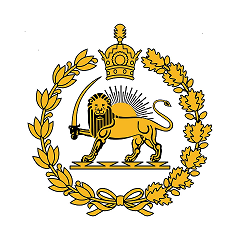 | International House of Mashruteh |
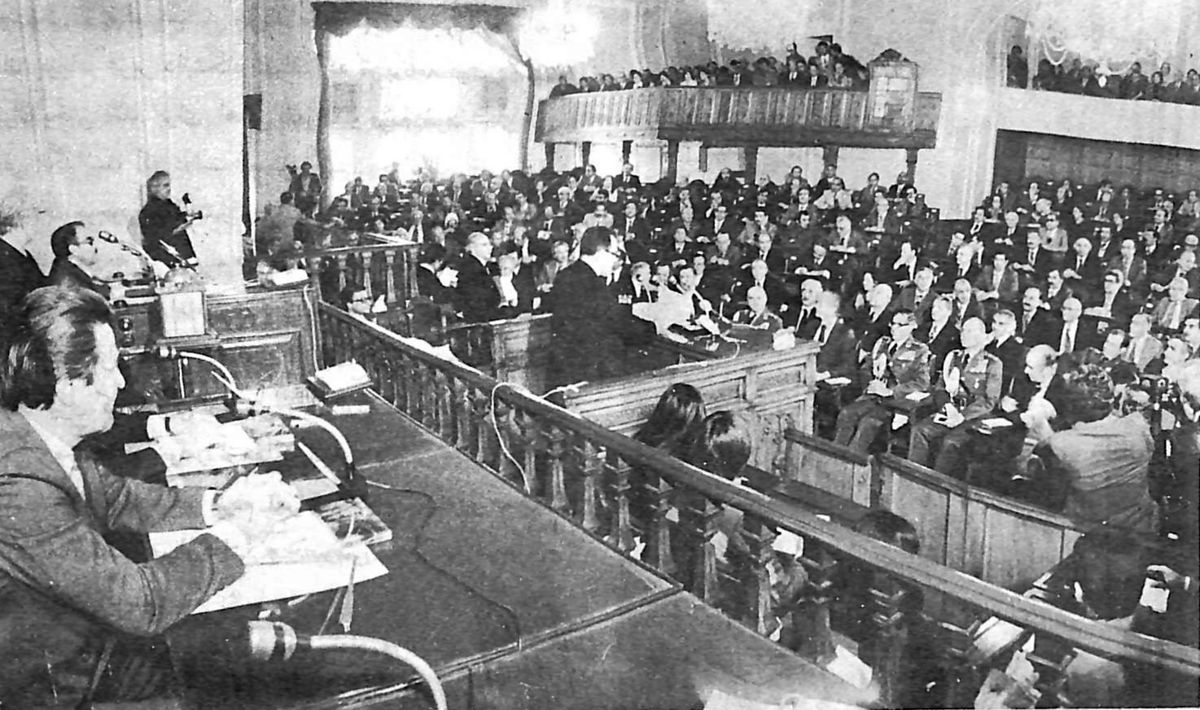
Lesson 1 - On the Constitution of the Assembly
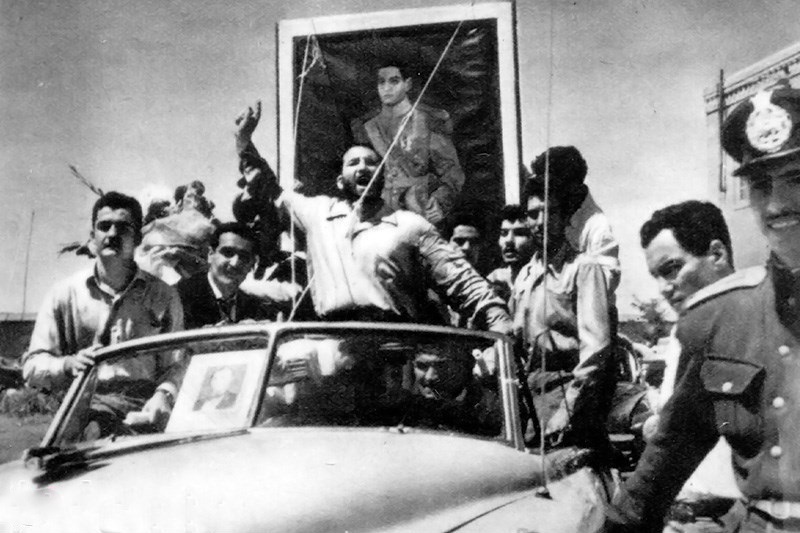
Lesson 2 - Rights of the Persian Nation
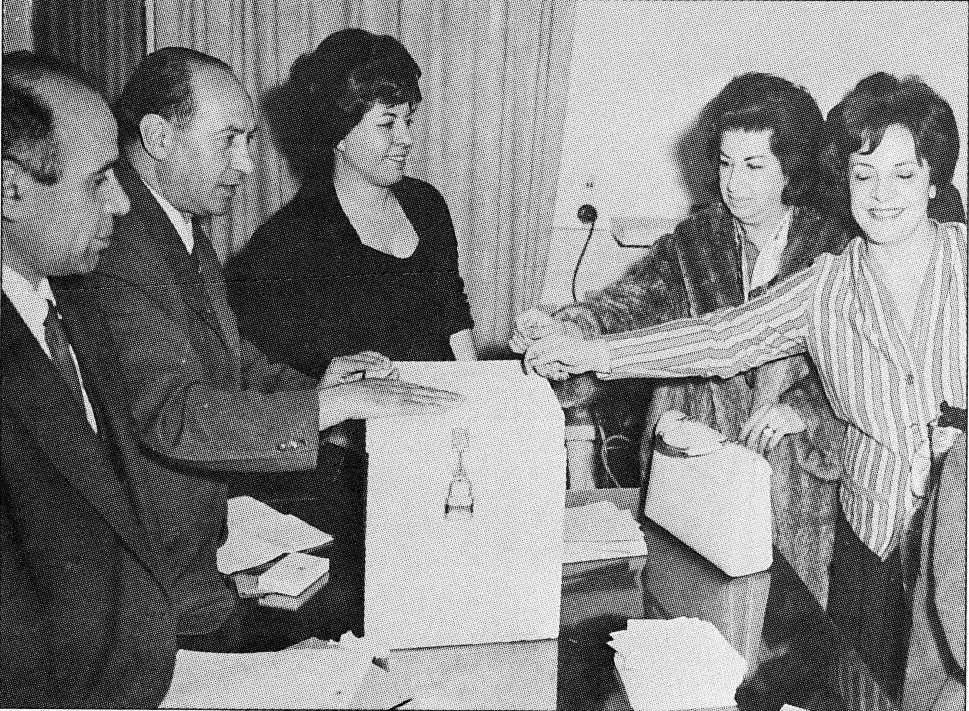
Lesson 3 - Election Law
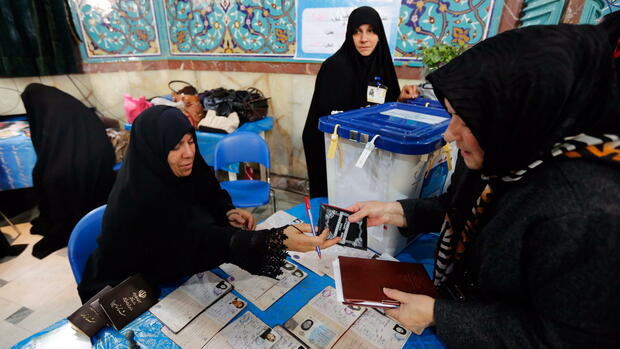
Lesson 4 - Why the election in Islamic Republic
On the Constitution of the Assembly

IRAN'S 1906 CONSTITUTION
[the Iranian CONSTITUTION AND ITS SUPPLEMENT promulgated in the reign of the late Muzaffaru’d-Din Shah and ratified by him on Dhu’l-Qa’da 14, A.H. 1324 (Gregorian calendar: 30th December 1906; Iranian calendar: the 8th of Day 1285)].
On the Constitution of the Assembly
Art. 1. The National Consultative Assembly is founded and established in conformity with the Farman, founded on justice, dated the fourteenth of the Second Jumada, A.H. 1324 (Aug. 5, 1906).
Art. 2. The National Consultative Assembly represents the whole of the people of Iran, who [thus] participate in the economic and political affairs of the country.
Art. 3. The National Consultative Assembly shall consist of the Members elected in Tehran and the Provinces, shall be held in Tehran.
Art. 4. The number of elected Members has been fixed in accordance with the Electoral Law separately promulgated, at two hundred and thereafter one seat to be added every 10 years upon increase of the population in each electoral district and accordingly to the official statistics for each 100,000 people.
Art. 5. The members shall be elected for four years, including the 19th term. Before end of the term fresh elections shall take place according to the law. Start of each term would be the date of approval of credentials, prior to appointing the representatives. Re-electing former representatives permitted.
Art. 6. Once two-thirds of the members of the National Consultative Assembly, meet in the capital, have the right to constitute the Assembly.
Art. 7. The Assembly may initiate the debate with any number of members, however, when the vote is taken, presence of at least half of the members are required, and a majority vote is reached once more than half of the participants in the session vote to reject or accept the matter.
Art. 8. The periods of session and recess of the National Consultative Assembly shall be determined by the Assembly itself, in accordance with such internal regulations as itself shall formulate. After the summer recess, the Assembly must continue and in session from the fourteenth day of the “Mizan” [reference to Islamic calendar], which corresponds with the festival of the opening of the First Assembly.
Art 9. The National Consultative Assembly can sit on occasions of extraordinary public holidays.
Art 10. On the opening of the Assembly, and Address shall be presented by it to His Imperial Majesty, and it shall afterwards have the honour of receiving an answer from that Royal.
Art. 11. Members of the Assembly, on taking their seats, shall take and subscribe to the following form of oath:
(Form of the Oath)
"We the undersigned take God to witness, and swear on the Qur’an, that, so long as the rights of the Assembly and its Members are observed and respected, in conformity with these Regulations, we will, so far as possible, discharge, with the utmost truth, uprightness, diligence and endeavour, the duties confided to us; that we will act loyally and truthfully towards our just and honoured Sovereign, commit no treason in respect of ether the foundations of the Throne or the Rights of the People, and will consider only the advantage and well-being of government and the nation of Iran."
Art 12. No one, on any pretext or excuse, shall have any right, without the knowledge and approval of the National Consultative Assembly, to molest its Members. Even in case of the Members committing some crime or misdemeanour, and being arrested flagrante delicto, any punishment inflicted upon him must be with the cognisance of the Assembly.
Art 13. The deliberations of the National Consultative Assembly, in order that effect may be given to their results, must be public. According to the Internal Regulations of the Assembly, journalists and spectators have the right to be present and listen, but not to speak. Newspapers may print and publish all the debates of the Assembly, provided they do not change or pervert their meaning, so that the public may be informed of the subjects of discussion and the detail of what takes place. Everyone, subject to his paying due regard to the public good, may discuss them in the Public Press, so that no matter may be veiled or hidden from any person. Therefore, all the newspapers, provided that their contents be not injurious to any one of the fundamental principles of the Government or the Nation, are authorised and allowed to print and publish all the matters advantageous to the public interest, such as the debates of the Assembly, and the opinions of the people on these debates. But if anyone, actuated by interested motives, shall print in the newspapers or in other publications anything contrary to what has been mentioned, or inspired by slander or calumny, he will render himself liable, to cross-examination, judgment and punishment, according to law.
Art. 14. The National Consultative Assembly shall organise and arrange, in accordance with separate and distinct Regulations call the Internal Code of Rules, its own affairs, such as the election of a President, Vice-presidents, Secretaries, and other officers, the arrangements of the debates and divisions, etc.
On the Duties of the Assembly and its Limitations and Rights
Art. 15. The National Consultative Assembly has the right in all questions to propose any measure which it regards as conducive to well-being of the Government and the People, after due discussion and deliberation thereof in all sincerity and truth; and, having due regard to the majority of votes, to submit such measure, in complete confidence and security, after it has received the approval of the Senate, by means of the First Minister of the State, so that may receive the Royal Approval and be duly carried out.
Art. 16. All laws necessary to strengthen the foundations of the State and Throne and set in order the affairs of the Realm and the establishment of the Ministries, must be submitted for approval to the National Consultative Assembly.
Art. 17. The National Consultative Assembly shall, when occasion arises, bring forward such measures as shall be necessary for the creation, modification, completion or abrogation of any Law, and, subject to the approval of the Senate, shall submit it for the Royal Sanction, so that due effect may thereafter be given to it.
Art. 18. The regulation of all financial matters, the construction and regulation of the Budget, all changes in fiscal arrangements, the acceptance or rejection of all incidental and subordinate expenditure, as also the new Inspectorships [of Finance] which will be founded by the Government, shall be subject to the approval of the Assembly.
Art. 19. The Assembly has the right, after the Senate has given its approval, to demand from the Ministers of State that effect shall be given to the measures thus approved for the reform of the finances and facilitation of co-operation between the different departments of the Government by division of the departments and provinces of Iran and their governments.
Art. 20. The Budget of each Ministry shall be concluded during the latter half of each year for the following year and shall be ready fifteen days before the Festival of Nowruz.
Art. 21. Should it be any time be necessary to introduce, modify or abrogate any Fundamental Law regulating the [function of the] Ministries, such change shall be made only with the approval of the Assembly, irrespective of whether the necessity for such action has been declared by the Assembly or enunciated by the responsible Ministers.
Art. 22. Any proposal to transfer or sell any portion of the [National] resources, or of the control exercised by the Government or the Throne, or to effect any change in the boundaries and frontiers of the Kingdom, shall be subject to the approval of the National Consultative Assembly.
Art. 23. Without the approval of the National Council, no concession for the formation of any public Company of any sort shall, under any plea soever, be granted by the State.
Art. 24. The conclusion of treaties and covenants, the granting of commercial, industrial, agricultural and other concessions, irrespective of whether they be to Iranian or foreign subjects, shall be subject to the approval of the National Consultative Assembly, with the exception of treaties which, for reasons of State and the public advantage, must be kept secret.
Art. 25. State loans, under whatever title, whether internal or external, must be contracted only with the cognisance and approval of the National Consultative Assembly.
Art. 26. The construction of railways or chausses, whether at the expense of the Government, or of any Company, whether Iranian or foreign, depends on the approval of the National Consultative Assembly.
Art. 27. Wherever the Assembly observes any defect in the laws or any neglect in giving effect to them, it shall notify the same to the Minister responsible for that department, who shall furnish all necessary explanations.
Art. 28. Should any Minister, acting under misapprehension, issue on the Royal Authority, whether in writing or by word of mouth, orders conflicting with one of the laws which have been enacted and have received the Royal Sanction, and shall admit his negligence and lack of attention, he shall, according to the Law, be personally responsible to His Imperial and Most Sacred Majesty.
Art 29. Should a Minister fail to give satisfactory account of any affair conformably to the laws which have received the Royal Sanction, and should it appear in his case that a violation of such law has been committed, or that he has transgressed the limits imposed on him, the Assembly shall demand his dismissal from the Royal Presence, and should his treason be clearly established in the Court of Justice, he shall not again be employed in the service of the State.
Art. 30. The Assembly shall, at any time when it considers necessary, have the right to make direct representations to the Royal Presence by means of a Committee consisting of the President and six of its Members chosen by the Six Classes. This committee must ask permission for, and the appointment of a time for approaching the Royal Presence through the “Master of the Ceremonies” (Wazir-i-Darbar).
Art. 31. Ministers have the right to be present at the Sessions of the National Consultative Assembly, to sit in the places appointed for them, and to listen to the debates of the Assembly. If they consider it necessary, they may ask the President of the Assembly for permission to speak and may give such explanations as may be necessary for purposes of discussion and investigation.
On the representation of affairs to the National Consultative Assembly
Art. 32. Any individual may submit in writing to the Petition Department of the Archives of the Assembly a statement of his own case, or of any criticisms or complaints. If the matter concerns the Assembly itself, it will give him a satisfactory answer; but if it concerns one of the Ministries, it will refer to that Ministry, which will enquire into the matter and return a sufficient answer.
Art. 33. New laws which are needed shall be drafted and revised in the Ministries which are respectively responsible and shall then be laid before the Assembly by the responsible Ministers, or by the Prime Minister. After being approved by the Assembly and ratified by the Royal Signature; they shall be duly put into force.
Art 34. The President of the Assembly can, in case of necessity, either personally, or on the demand of ten Members of the Assembly, hold a private conference, comprised of a selected number of Members of the Assembly, with any Minister, from which private meeting newspaper correspondents and spectators shall be excluded, and at which other Members of the Assembly shall not have the right to be present. The result of the deliberations of such secret conference shall, however, only be confirmed when it has been deliberated in the said conference in presence of three quarters of those selected [to serve on it] and carried by a majority of votes. Should the proposition in question not be accepted in the private conference, it shall not be brought forward in the Assembly, but shall be passed over in silence.
Art. 35. If such private conference shall have been held at the demand of the President of the Assembly, he has the right to inform the public of so much of the deliberations as he shall deem expedient; but if the private conference has been held at the demand of a Minister, the disclosure of the deliberations depends on the permission of that Minister.
Art. 36. Any Minister can withdraw any matter which he has proposed to the Assembly at any point in the discussion, unless his statement has been made at the request of the Assembly, in which case the withdrawal of the matter depends on the consent of the Assembly.
Art. 37. If a bill introduced by any Minister is not accepted by the Assembly, it shall be returned supplemented by the observations of the Assembly; and the responsible Minister, after rejecting or accepting the criticism of the Assembly, can propose the aforesaid measure a second time to the Assembly.
Art. 38. The Members of the National Consultative Assembly must clearly and plainly signify their rejection or acceptance of bills, and no one has the right to persuade or threaten them in recording their votes. The signification by the Members of the Assembly of such rejection or acceptance must be realised in such manner that newspaper correspondents and spectators also may perceive it, that is to say their intention must be signified by some outward sign, such as blue and white voting-papers, or the like.
The proposal of measures on the part of the Assembly
Art. 39. Whenever any measure is proposed on the part of one of the Members of the Assembly, it can only be discussed when at least fifteen Members of the Assembly shall approve the discussion of that measure. In such case the proposal in question shall be forwarded in writing to the President of the Assembly, who has the right to arrange that it shall be subjected to a preliminary investigation in a Committee of Enquiry.
Art. 40. On the occasion of the discussion and investigation of the measure mentioned in Art. 39, whether in the Assembly or in the Committee of Enquiry, notice shall be given by the Assembly to the responsible Minister, if any, concerned in the measure, that if possible he himself, or, if not, his deputy-Minister, shall present in the Assembly, so that the debate may take place in the presence of one of them. The draft of the [proposed] bill, with its additions, must be sent from ten days to a month before the time (with the exception of urgent matters) to the responsible Minister; and so likewise the day of its discussion must be determined beforehand. After the measure has been discussed in the presence of the responsible Minister, and in case it should, by a majority of votes, receive the approval of the Assembly, it shall be officially transmitted in writing to the responsible Minister, so that he may take appropriate actions [to put it in force].
Art. 41. If the responsible Minister cannot, for any reason, agree with the Assembly with the bill proposed by it, he must offer his excuses to it and give it satisfaction.
Art.42. Should the National Consultative Assembly demand explanations on any matter from the responsible Minister, the Minister in question must give an answer, the answer must not be postponed unnecessarily or without plausible reason, unless in the case of secret measures, the secrecy of which for some definite period is to the advantage of the State and the nation. In such cases, on the lapse of the definite period the responsible Minister is bound to disclose this measure in the Assembly.
On the Conditions regulating the formation of the Senate
Art. 43. There shall be constituted another Assembly, entitled the Senate, consisting of sixty Members, the sessions of which, after its constitution, shall be complementary to the sessions of the National Consultative Assembly.
Art. 44. The Regulations of the Senate must be approved by the National Consultative Assembly.
Art. 45. The Members of this Assembly shall be chosen from amongst the well-informed, discerning, pious and respected persons of the country. Thirty of them shall be nominated on the part of His Imperial Majesty (fifteen of the people of Tehran, and fifteen of the people of the Provinces), and thirty by the Nation (fifteen elected by the people of Tehran, and fifteen by the people of Provinces).
Art. 46. After the coalescence of the Senate, all proposals must be approved by both Assemblies. If those proposals shall have been originated in the Senate, or by the Cabinet of Ministers, they must first be amended and corrected in the Senate and accepted by a majority of votes and must then be approved by the National Consultative Assembly. But proposals brought forward by the National Consultative Assembly must, on the contrary, go from this Assembly to the Senate, except in the case of financial matters, which is exclusive to the National Consultative Assembly. The decision of the Assembly, in respect to the above-mentioned proposals, shall be made known to the Senate, so that it in turn may communicate its observations to the National Assembly, however, the latter, after discussion, is free to accept or reject these observations of the Senate.
Art. 47. So long as the Senate has not been retired, proposals shall, after being approved by the National Consultative Assembly, receive the Royal assent, and shall then have the force of law.
Art. 48. His Imperial Majesty may issue an Imperial Command for dissolution of National Consultative Assembly and the Senate or both simultaneously.
Art. 49. The new representatives of Tehran must present themselves within the space of one month, and the representatives of the provinces within the space of three months. When the representatives of the Capital are present, the Assembly shall be opened, and shall begin its work, but they shall not discuss disputed proposals until the provincial representatives shall arrive. If, after the arrival of all its Members, the new Assembly shall by a clear majority confirm the first decision, His Most Sacred and Imperial Majesty shall approve that decision of the national Consultative Assembly and shall order it be carried into effect.
Art. 50. In each electoral period, which consists of four years, orders for the renewal of representatives shall not be given more than once.
Art. 51. It is agreed that the kings of our successors and posterity shall regard as a duty of their sovereign state and an obligation incumbent upon them the maintenance of these laws and principles, which we have established and put into force for the strengthening of the edifice of the State, the consolidation of the foundations of the Throne, the superintendence of the machinery of Justice, and the tranquillity of the Nation.
"Dhu’l-Qu’ada, A.H. 1324" (December 30, 1906)
"These Fundamental Laws of the National Consultative Assembly and the Senate, containing fifty-one Articles, are correct."
"Dhu’l-Qu’ada 14, A.H. 1324" (December 30, 1906)
[Underneath the concluding words is the signature of the late Shah, Muzaffaru’d-Din, and on the back of the page are the seals of the Crown Prince or Wali-‘ahd (the present Shah, Muhammad ‘Ali) and of the late Mushiru’d-Dawla.]
 CH
CH DE
DE US
US FA پارسی
FA پارسی